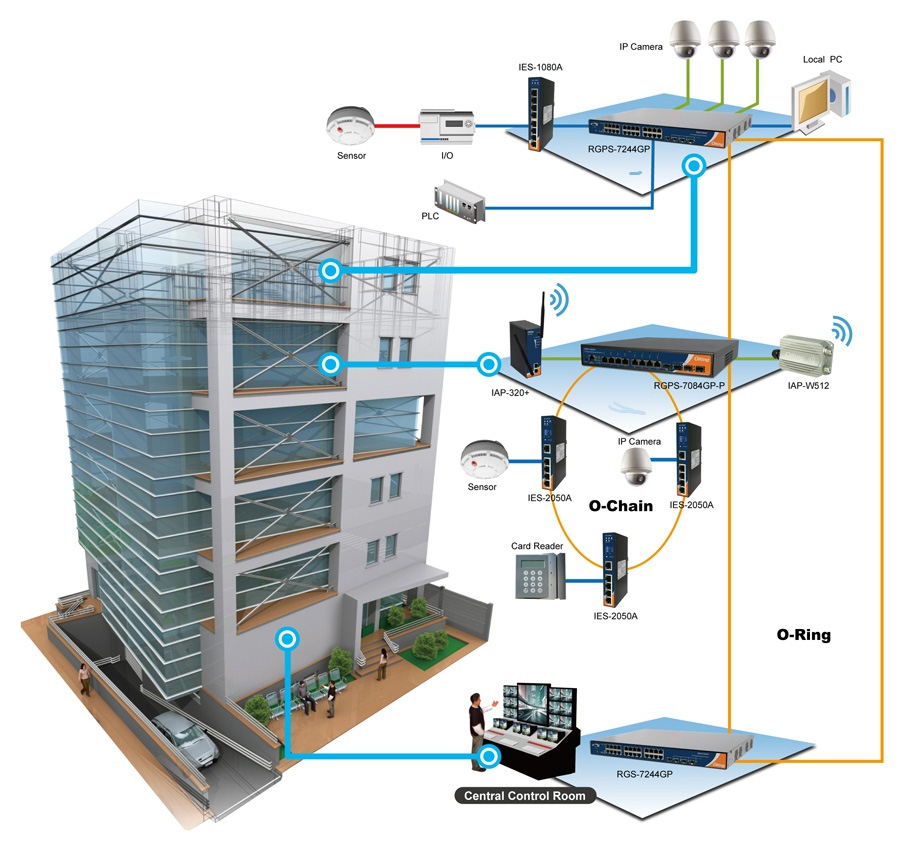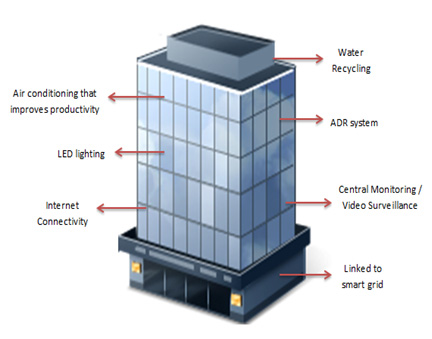The concept is to convert the entire electrical infrastructure into a high speed physical LAN wherein each and every power socket will be smart socket and have a power line signal (Broadband enabled). The same electrical network can be used for various services like VOIP, VOD, AOD, Metering, Internet, IPTV etc.
The fundamental issue behind the concept of smart buildings is of energy savings. But there is much to a 'smart' building that differentiates it with a 'normal' building. These include management systems, security controls, disaster prevention systems,


Besides energy savings, some standard features and advantages that can be expected of smart buildings are
Smart buildings when combined with a smart grid would provide the ideal solution to a low carbon economy. Carbon emissions can be significantly reduced by providing distributed energy capability through a combination of smart buildings energy managements systems and the enterprise energy management systems. Smart buildings recoup their investment within 2-3 years only through energy savings. As such the concept of Smart Buildings is a no-brainer.
Our solutions to smart buildings will be LEED certified. LEED, or Leadership in Energy & Environmental Design, is a green building certification program that recognizes best in class building strategies and practices. LEED certified buildings save money and resources and have a positive impact on the health of occupants, while promoting renewable, clean energy.